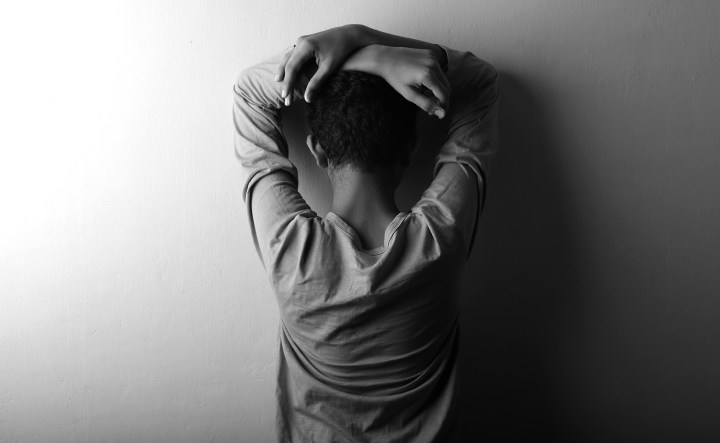YOUNG IN TURMOIL OP-ED
Alarm should be raised about South Africa’s rising child suicide rates

We are in a crisis, as rising adversity traps many South African children in depression, anxiety and post-traumatic stress disorder, among other conditions, with nowhere to turn for help.
Asisipho Mvana is a young person on a mission to bring mental healthcare to Khayelitsha clinics. She is taking the bull by the horns after her 16-year-old niece suffered an anxiety attack and could not get a diagnosis and treatment from the local clinic because there were no mental health practitioners on site.
Asisipho became determined to make mental healthcare accessible to everyone in Khayelitsha, especially children and young people who often turn to suicide and drug and alcohol abuse when they do not get the help they need. She has started a Change.org petition calling on the Western Cape health MEC to integrate mental healthcare into all primary healthcare clinics in Khayelitsha.
According to the South African Child Gauge, which focuses on children’s mental health, only one in 10 South African children who suffer from diagnosable and treatable mental health issues have access to any kind of mental healthcare. Since the start of 2023, Gauteng alone has recorded 40 alleged pupil suicide-related deaths.
As we eagerly await the Department of Health’s implementation of the recently released National Mental Health Policy Framework – notwithstanding the austerity measures being imposed on the health sector and the controversy around reopening public comment on the NHI Bill, which is largely meant to fund the implementation of this policy – we might need to start figuring out how else we can help our children to cope.
Our public schooling system may be one of the simpler ways to reach children with undiagnosed and untreated mental health issues. Collaborative efforts between the departments of Education and of Social Development (which has a surplus of unplaced social workers) might just be the solution that we need to get care for the children who so desperately need it. Integrating mental health professionals into our primary healthcare clinics can speed up the process of diagnosing and treating mental health issues without children having to go through a long and often costly referral process that discourages them from seeking treatment.
Leaving children alone to deal with undiagnosed and untreated mental health issues will only increase their risk of turning to alcohol, drugs and even suicide.
A number of campaigns have been started by young people grappling with how to make mental healthcare more accessible to children and adolescents, especially in underresourced communities.
Social worker Mfundo Ntandane, who is troubled by the high dropout rates of children in his home province of Mpumalanga and in South Africa as a whole, has started a campaign which aims to keep children in school by asking the education department in Mpumalanga to hire specialist school social workers and station them in all public schools. This would prioritise the psychosocial welfare of children, thereby preventing many more social ills such as children turning to drugs, alcohol and suicide when life is too hard on them.
Lekita Paul is campaigning for the Gauteng education department to provide LGBTQ+ support groups at high schools in the province. Lekita came out as bisexual in high school and when her confidentiality was breached by those she had trusted and the news spread throughout the school, she went through an extremely alienating time. She was targeted and bullied by other children, which made her determined to one day create safe spaces for LGBTQ+ pupils and protect other young people from homophobic bullying.
Read more in Daily Maverick: Students and suicide – where to get help and be heard before crisis strikes
The levels of adversity that South African children face are not lowering. In fact, 63% of our children are living below the upper-bound poverty line. Many of our children witness and experience high levels of violence daily. As the adversity increases so do mental health issues. Children end up with depression, anxiety, post-traumatic stress disorder, among others, and have nowhere to turn for help.
Alarms need to be raised about this.
We are in a crisis, and as a nation that cares for its young people we must prioritise the needs of children and adolescents. Leaving children alone to deal with undiagnosed and untreated mental health issues will only increase their risk of turning to alcohol, drugs and even suicide as a solution. If we continue to do nothing about this we are surely headed for a very dark future. DM
Noxolo Mfocwa is a campaign strategist at Change.org South Africa.




















Comments - Please login in order to comment.